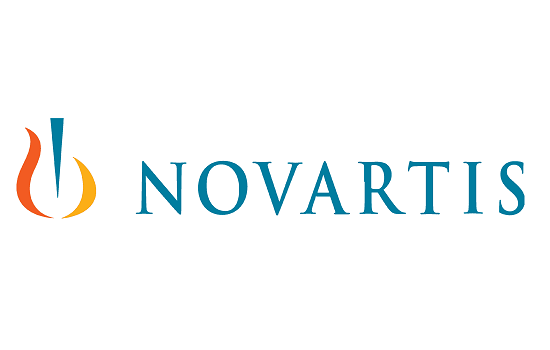Novartis investigational oral monotherapy iptacopan demonstrates clinically meaningful superiority over anti-C5 treatment in Pivotal Phase III APPLY-PNH trial
Novartis has announced the pivotal Phase III APPLY-PNH trial met its two primary endpoints, showing investigational oral monotherapy iptacopan was superior to anti-C5 therapies (eculizumab or ravulizumab) in adults with paroxysmal nocturnal hemoglobinuria (PNH) experiencing residual anemia despite prior treatment with anti-C5s. Detailed results will be presented at an upcoming medical meeting and included as part of global regulatory submissions in 2023.
Topline results showed a statistically significant and clinically meaningful increase in the proportion of patients treated with iptacopan (200 mg twice daily) achieving hemoglobin-level increases of 2 g/dL or more from baseline without the need for blood transfusions at 24 weeks, compared to anti-C5 therapies, a primary endpoint of the study1. Additionally, there was a statistically significant and clinically meaningful increase in the proportion of patients in the iptacopan arm achieving hemoglobin levels of 12 g/dL or more without the need for blood transfusions at 24 weeks, compared to anti-C5 therapies, also a primary endpoint of the study. Iptacopan was well tolerated with a favorable safety profile consistent with previously reported data.
“These positive topline Phase III results highlight the practice-changing potential of iptacopan for patients suffering from debilitating anemia and the burden of lifelong blood transfusions as a result of PNH,” said Shreeram Aradhye, M.D., President, Global Drug Development and Chief Medical Officer, Novartis. “We look forward to discussing the data with regulators so we can bring this first-in-class alternative complement pathway inhibitor as the first oral monotherapy to people living with PNH.”
Novartis is grateful to the patients and clinical investigators whose time, trust and commitment made this research possible, and is excited to continue to explore the potential of iptacopan as the first oral monotherapy option for PNH. Iptacopan is also being studied in complement-inhibitor-naïve patients with PNH in the ongoing Phase III APPOINT-PNH trial (NCT04820530), expected to read out in the coming months.
Additionally, iptacopan is being studied in Phase III trials for the complement-mediated kidney diseases (CMKDs) C3 glomerulopathy (APPEAR-C3G [NCT04817618]), IgA nephropathy (APPLAUSE-IgAN [NCT04578834]), and atypical hemolytic uremic syndrome (APPELHUS [NCT04889430]), as well as in a number of additional indications in Phase II.
About the study
APPLY-PNH (NCT04558918) is a Phase III, randomized, multinational, multicenter, active-comparator controlled, open-label trial to evaluate the efficacy and safety of twice-daily, oral iptacopan monotherapy (200 mg) for the treatment of PNH by demonstrating the superiority of iptacopan compared to anti-C5 therapies (eculizumab or ravulizumab) in adult patients presenting with residual anemia despite a stable regimen of anti-C5 treatment in the last six months prior to randomization.
One primary endpoint was to assess the percentage of patients achieving an increase in hemoglobin levels from baseline of 2 g/dL or more in the absence of red blood cell (RBC) transfusions at 24 weeks. Another primary endpoint was to assess the percentage of participants achieving sustained hemoglobin levels of 12 g/dL or more in the absence of RBC transfusions at 24 weeks. Secondary endpoints include percentage of participants who remain free from transfusions, average change in hemoglobin levels, change in fatigue, average change in absolute reticulocyte counts, average percent change in lactate dehydrogenase (LDH) levels, rate of breakthrough hemolysis, and rates of major adverse vascular events.
The trial enrolled 97 patients who were randomized in an 8:5 ratio to either twice-daily, oral iptacopan monotherapy, or intravenous anti-C5 therapies (continuing with the same regimen as they were on prior to randomization).
About paroxysmal nocturnal hemoglobinuria (PNH)
PNH is a rare, chronic and serious complement-mediated blood disorder. People with PNH have an acquired mutation in some of their hematopoietic stem cells (which are located in the bone marrow and can grow and develop into RBCs, white blood cells and platelets) that causes them to produce RBCs that are susceptible to premature destruction by the complement system. This leads to intravascular hemolysis (destruction of RBCs within blood vessels) and extravascular hemolysis (destruction of RBCs mostly in the spleen and liver), which cause anemia (low levels of circulating RBCs), thrombosis (formation of blood clots), fatigue and other debilitating symptoms that can impact people’s quality of life.
It is estimated that, each year, approx. 1-2 people per million worldwide are newly diagnosed with PNH. Although PNH can develop at any age, it is often diagnosed in people between 30-40 years old.
PNH has a significant unmet need not addressed by anti-C5 therapies (eculizumab or ravulizumab): despite treatment with anti-C5s, a large proportion of people with PNH remain anemic, fatigued and dependent on blood transfusions.
About iptacopan
Iptacopan is an investigational first-in-class, orally administered targeted factor B inhibitor of the alternative complement pathway. It acts upstream of the C5 terminal pathway, preventing not only intravascular but also extravascular hemolysis in PNH. In doing so, iptacopan may have a therapeutic advantage over anti-C5 therapies by targeting a key part of the biology responsible for PNH while offering an oral monotherapy option.
Discovered at the Novartis Institutes for BioMedical Research, iptacopan is currently in development for a number of other complement-mediated diseases (CMDs) where significant unmet needs exist, including kidney diseases C3G, IgAN, atypical hemolytic uremic syndrome (aHUS), membranous nephropathy (MN), lupus nephritis (LN), and blood disorders immune thrombocytopenic purpura (ITP) and cold agglutinin disease (CAD).
Based on disease prevalence and data from Pivotal Phase III APPLY-PNH trial, iptacopan has received FDA Breakthrough Therapy Designation in PNH, orphan drug designations from the FDA and EMA in PNH and C3G, EMA PRIME designation for C3G, and EMA orphan drug designation in IgAN.
Source: Novartis


